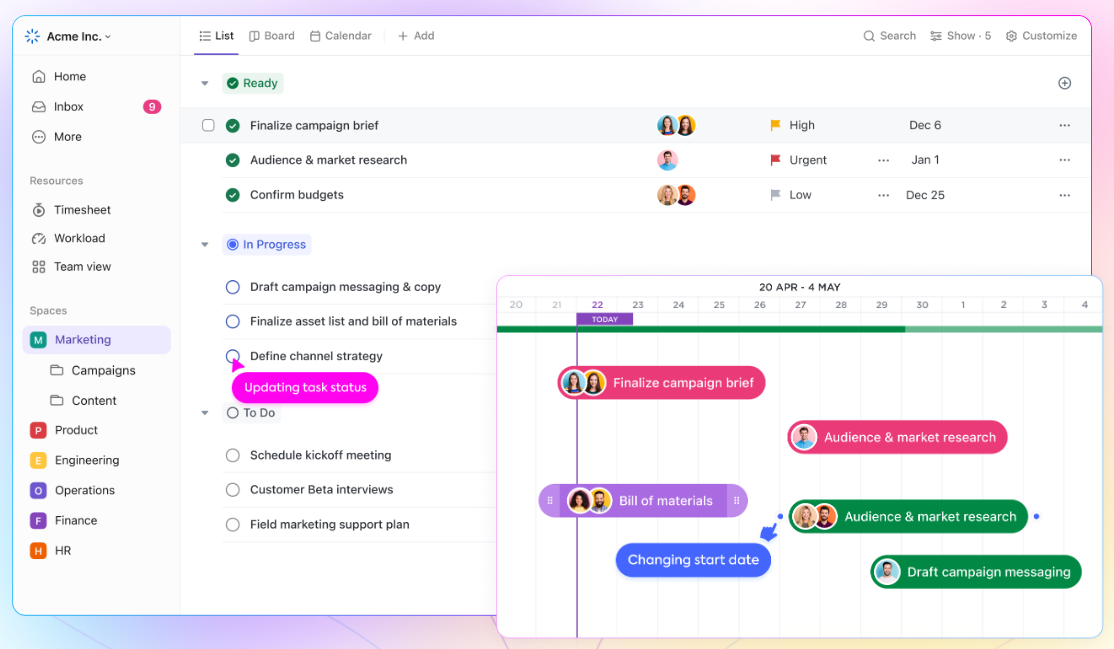The Importance of Focusing on One Task at a Time
In today’s fast-paced world, multitasking has become a common practice for many individuals striving to manage their busy schedules. However, research has consistently shown that focusing on one task at a time, also known as single-tasking, is far more effective for productivity, mental health, and overall work quality. This article explores the significance of concentrating on a single task compared to multitasking, highlighting the benefits and practical strategies for embracing single-tasking.
Single-Tasking vs. Multitasking
Multitasking:
Multitasking refers to the simultaneous execution of multiple tasks. While it may seem efficient, it often leads to a decrease in productivity and an increase in errors. This is because the human brain is not designed to handle multiple complex tasks at the same time. Instead, it rapidly switches attention from one task to another, which can cause mental fatigue and reduce overall efficiency.
Single-Tasking:
Single-tasking, on the other hand, involves dedicating uninterrupted focus to one task until it is completed. This approach allows for deeper concentration, higher quality work, and a more significant sense of accomplishment. Single-tasking reduces the cognitive load on the brain, enabling individuals to perform tasks more efficiently and effectively.

Benefits of Single-Tasking
1. Enhanced Productivity:
When focusing on one task at a time, individuals can complete tasks faster and with fewer mistakes. This is because single-tasking eliminates the time lost in switching between tasks and allows for sustained attention on the task at hand. Studies have shown that people who single-task are often more productive than those who attempt to multitask.
2. Improved Quality of Work:
Single-tasking enables individuals to dive deeper into their work, resulting in higher quality outcomes. When not distracted by multiple tasks, the brain can fully engage in problem-solving and creative thinking, leading to better and more innovative solutions.
3. Reduced Stress and Mental Fatigue:
Multitasking can be mentally exhausting as it requires constant shifting of focus, which can lead to increased stress and fatigue. Single-tasking, in contrast, promotes a calmer and more focused work environment, reducing the mental strain associated with juggling multiple tasks.
4. Better Memory and Learning:
Concentrating on one task at a time enhances memory retention and learning. The brain can process and store information more effectively without the interference of unrelated tasks. This leads to better understanding and recall of information.
5. Increased Creativity:
Single-tasking fosters a state of flow, where individuals can immerse themselves in their work without interruptions. This uninterrupted focus allows for greater creativity and the ability to explore new ideas and perspectives.
Practical Strategies for Single-Tasking
1. Prioritize Tasks:
Create a list of tasks and prioritize them based on importance and deadlines. Focus on completing the most critical task first before moving on to the next one. This ensures that you are always working on what matters most. Learn to prioritize your tasks.
2. Set Specific Goals:
Define clear and achievable goals for each work session. Having specific objectives helps maintain focus and provides a sense of direction.
3. Eliminate Distractions:
Design a work environment free from distractions. Turn off notifications, close unnecessary tabs on your computer, and find a quiet space to work. Minimizing interruptions allows for sustained focus. See How to Limit Distractions to Be More Productive
4. Use Time Management Techniques:
Implement techniques such as the Pomodoro Technique, which involves working for a set period (e.g., 25 minutes) followed by a short break. This method helps maintain high levels of concentration and prevents burnout.
5. Take Regular Breaks:
Incorporate regular breaks into your work schedule to rest and recharge. Short breaks can help maintain focus and prevent mental fatigue, leading to better overall performance.
6. Practice Mindfulness:
Mindfulness exercises can enhance your ability to focus on the present moment and reduce the tendency to multitask. Practices such as meditation can improve concentration and mental clarity.
Conclusion
While multitasking might appear to be a necessary skill in today’s busy world, focusing on one task at a time proves to be more beneficial for productivity, work quality, and mental well-being. By embracing single-tasking and implementing practical strategies to maintain focus, individuals can achieve better results and experience a more fulfilling and less stressful work life. Prioritizing tasks, eliminating distractions, and taking regular breaks are key components of effective single-tasking, enabling us to perform at our best and enjoy greater success in our endeavors.



